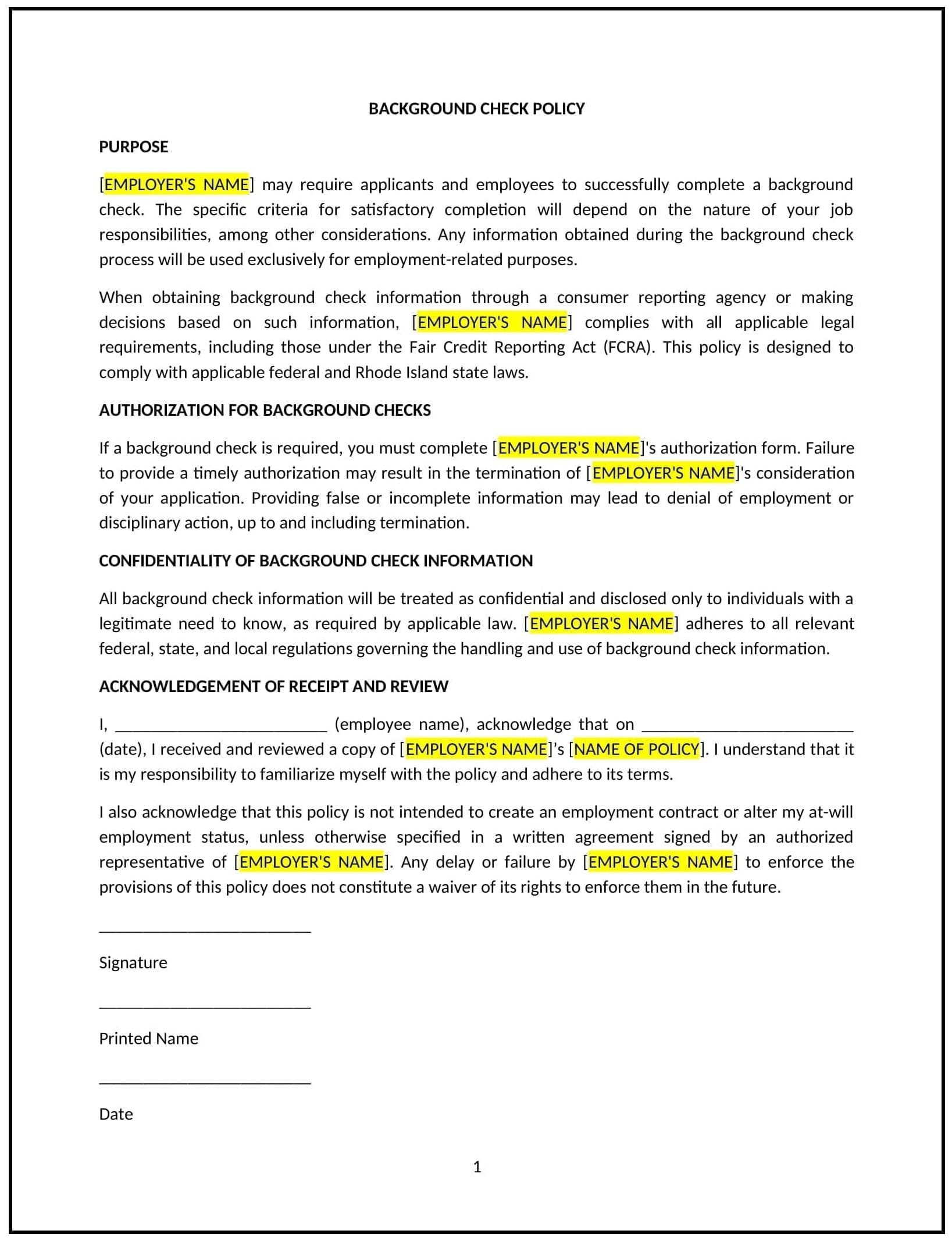Background check policy (Rhode Island): Free template
Got contracts to review? While you're here for policies, let Cobrief make contract review effortless—start your free review now.

Customize this template for free
Background check policy (Rhode Island)
This background check policy is designed to help Rhode Island businesses establish guidelines for conducting background checks on job applicants and employees. It outlines procedures for obtaining consent, ensuring fairness, and maintaining compliance with state and federal laws, such as the Fair Credit Reporting Act (FCRA).
By adopting this policy, businesses can make informed hiring decisions, reduce risks, and align with general best practices for background screening.
How to use this background check policy (Rhode Island)
- Define background checks: Explain what constitutes a background check, such as criminal history, employment verification, or credit checks.
- Establish consent procedures: Provide steps for obtaining written consent from applicants or employees before conducting background checks.
- Address fairness: Outline how background check results will be evaluated, ensuring they are relevant to the job and applied consistently.
- Set compliance measures: Ensure that background checks comply with state and federal laws, such as the FCRA and Rhode Island’s Ban the Box law.
- Train HR and managers: Educate hiring managers on conducting background checks fairly and in compliance with the policy.
- Review and update: Assess the policy annually to ensure it aligns with evolving business needs and legal standards.
Benefits of using this background check policy (Rhode Island)
This policy offers several advantages for Rhode Island businesses:
- Reduces hiring risks: Ensures that candidates are thoroughly vetted, minimizing the potential for workplace issues.
- Promotes fairness: Provides a structured approach to evaluating background check results and making hiring decisions.
- Aligns with legal standards: Helps businesses comply with state and federal laws, such as the FCRA and Ban the Box.
- Builds trust: Demonstrates a commitment to fair and transparent hiring practices.
- Enhances workplace safety: Ensures that employees are qualified and trustworthy.
Tips for using this background check policy (Rhode Island)
- Communicate the policy: Share the policy with hiring managers and include it in the employee handbook.
- Provide training: Educate HR and managers on conducting background checks fairly and in compliance with the policy.
- Monitor adherence: Regularly review background check processes to ensure compliance with the policy and legal standards.
- Address issues promptly: Take corrective action if background checks are mishandled or if compliance issues arise.
- Update regularly: Assess the policy annually to ensure it aligns with evolving business needs and legal standards.